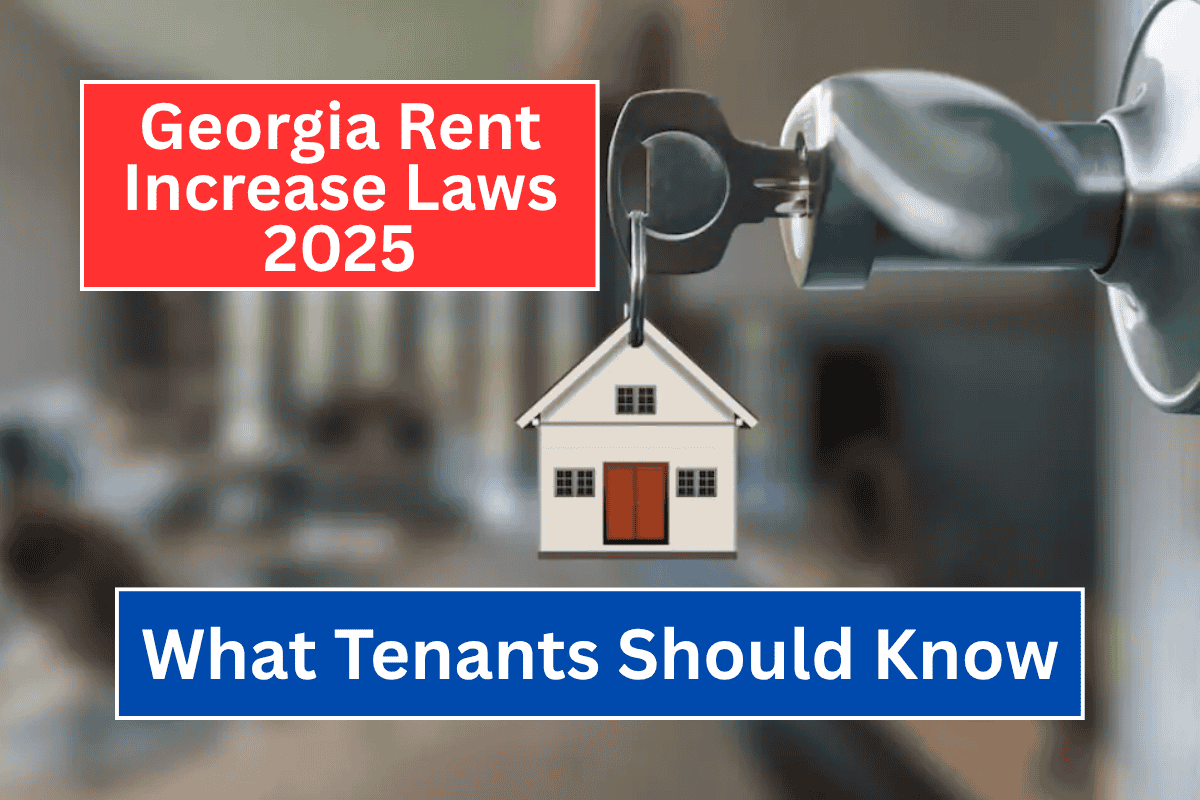In Georgia, rent increases are subject to specific rules that landlords must follow to ensure a fair process. Understanding these rules is essential for tenants to know their rights and avoid unexpected legal consequences.
Below, we break down Georgia’s rent increase regulations, what tenants should know about their rights, and how to navigate potential challenges in 2025.
Notice Requirements for Rent Increases
In Georgia, landlords are required to provide 60 days’ notice before increasing the rent. This rule applies when:
The lease term has ended, or
There is no written lease agreement in place.
The notice must clearly indicate the new rent amount and the effective date of the increase. If a tenant does not receive this notice in time, they may have grounds to dispute the rent increase.
Tip: Always keep a copy of the rent increase notice for your records and pay attention to the 60-day notice period, which allows tenants time to decide whether to accept the new rent terms or seek alternative housing.
Rent Increase Amount Limitations
Georgia does not have statewide rent control or rent stabilization laws. This means that landlords have the freedom to raise rent by any amount as long as the appropriate notice is given.
However, recent legislative updates, like HB 938, have set specific restrictions for certain groups. For instance, the law limits rent increases for tenants who are over 62 and rely primarily on social security or disability benefits.
While Georgia currently lacks statewide rent control laws, certain local jurisdictions may impose their own limitations. It’s crucial for tenants to check local regulations to understand whether specific rent increase rules apply to them.
Tenant Rights and Protections in Georgia
Georgia tenants have several protections under state and federal law to ensure fair treatment:
1. Fair Housing Act Provisions
The Fair Housing Act prohibits discrimination based on race, color, national origin, religion, sex, familial status, or disability. This means that landlords cannot deny housing, offer different terms, or increase rent based on these factors. Tenants who face discrimination have the right to file complaints with local fair housing organizations.
2. Security Deposits and Holding Fees
As of July 2024, the Safe at Home Act limits the security deposit to a maximum of two months’ rent. Additionally, landlords must return the deposit within 30 days of lease termination if there are no damages. If the deposit is not returned in full, a written statement must be provided explaining any deductions.
3. Lease Termination Procedures
Tenants wishing to terminate a lease early must typically provide a 30-day written notice for month-to-month leases. For fixed-term leases, termination requirements may differ. If a landlord fails to make necessary repairs, tenants may have grounds for terminating the lease without penalty.
Lease Agreement Guidelines in Georgia
A lease agreement in Georgia outlines the responsibilities and rights of both the landlord and tenant. Understanding the key aspects of your lease can help you avoid misunderstandings:
1. Standard Lease Terms
Typical lease terms include:
Rent amount, due date, and payment methods
Duration of the lease
Maintenance responsibilities (who handles repairs)
Leases also outline rules related to property alterations. Always read your lease thoroughly to understand your obligations and rights.
2. Occupancy Rules and Limits
Leases specify how many people can occupy the rental unit. Over-occupancy may lead to safety concerns and damage. Landlords should set clear occupancy limits to comply with local housing codes.
Landlord Obligations in Georgia
Landlords have several legal obligations to ensure that rental properties are habitable and safe:
1. Maintenance and Repairs
Landlords must keep the property in a livable condition. This includes ensuring that essential repairs are made, such as fixing leaks, electrical problems, and plumbing issues. Tenants should notify landlords in writing about any needed repairs.
2. Safe Living Conditions
Landlords must meet basic health and safety standards—including working smoke detectors, heating systems, and secure locks. Properties should be free from hazards like mold, pests, or lead paint. Failure to maintain safe living conditions can lead to legal consequences for landlords.
Eviction Policies and Tenant Rights
Georgia has specific rules about eviction procedures:
1. Legal Grounds for Eviction
Evictions can occur for various reasons, such as:
Non-payment of rent
Lease violations, such as unauthorized pets or property damage
Holdover tenants, or tenants staying after the lease term ends
2. Eviction Process
To evict a tenant, the landlord must provide proper notice and file a dispossessory action in court if the tenant does not comply with the notice. Tenants have the right to contest the eviction and present their case in court.
Additional Resources for Tenants in Georgia
If tenants face difficulties, several resources are available to assist them:
1. Georgia Affordable Housing Programs
The Georgia Department of Community Affairs offers programs such as the Housing Choice Voucher Program (Section 8), which helps low-income families afford housing. The Georgia Dream Homeownership Program supports first-time homebuyers, while the Safe at Home Act provides rental assistance to prevent homelessness.
2. Tenant Advocacy and Support Organizations
Organizations like the Georgia Legal Services Program offer free legal assistance for tenants facing eviction or unsafe living conditions. The Atlanta Volunteer Lawyers Foundation also provides support for housing-related issues.
In 2025, understanding Georgia’s rent increase laws and tenant rights is crucial for both tenants and landlords. While rent increases are generally unrestricted, proper notice must be provided, and tenant protections exist against discrimination and unsafe living conditions.
By staying informed about local regulations and understanding your rights, tenants can maintain a fair and safe living environment. Always read lease agreements carefully, know the rules about evictions, and seek legal advice if necessary.












